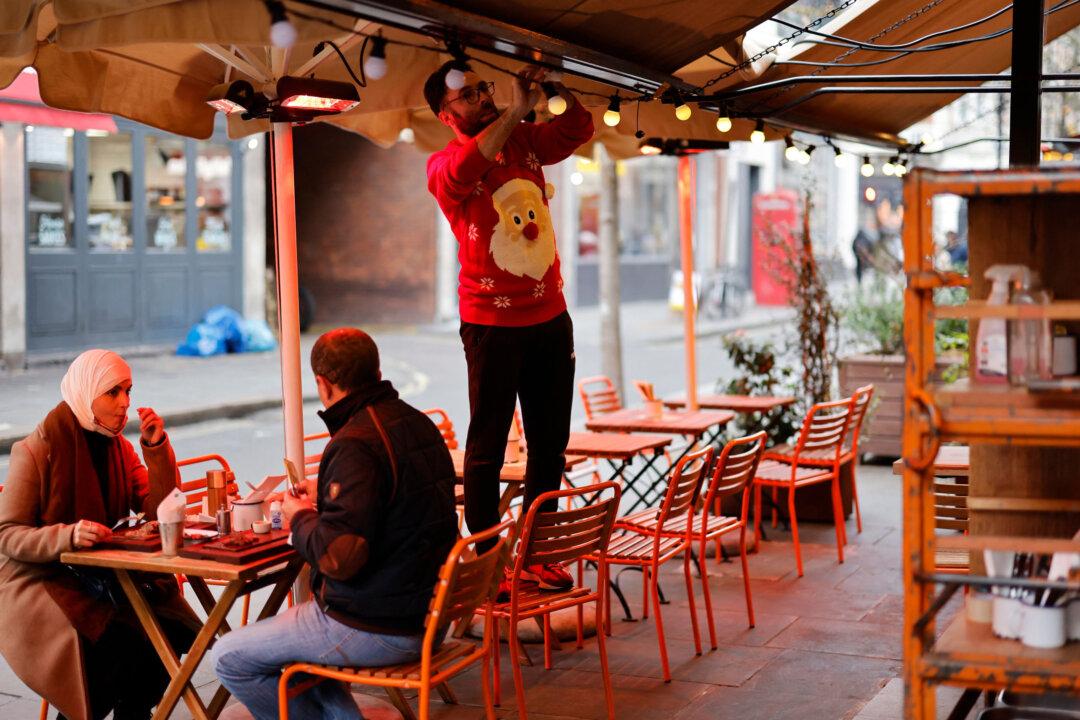A £1 billion ($1.32 billion) taxpayer-funded package has been announced in England on Tuesday to support businesses affected by the spread of the CCP virus and the government policy to curb the spread of the virus, which causes COVID-19.
With the uncertainty around the Omicron variant looming, hospitality businesses have taken another hit in the most crucial month of the year as people canceled their Christmas plans.





